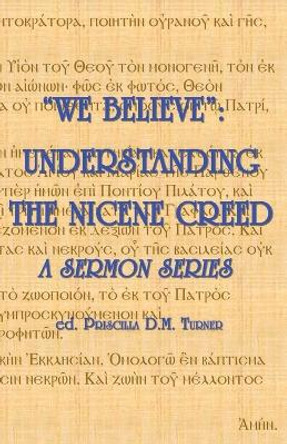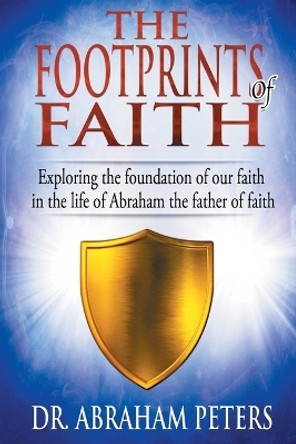Description
An exploration of the theology of the Nicene-Constantinopolitan Creed
About the Author
Church of England priest, Lecturer and Tutor in Theology at St Mellitus College (East Midlands). He is author of T. F. Torrance's Reconstruction of Natural Theology: Christ and Cognition (Lexington) and God, Freedom and the Body of Christ: Toward a Theology of the Church (Cascade), and editor of The Doctrine of the Incarnation Opened by Edward Irving: Abridged with Introduction (Pickwick, forthcoming).
Reviews
Alex Irving is very well versed in ... the ancient and modern discussions and is in a marvellous position to explain both of them to interested readers. His work shows the way to a sophisticated and genuine appropriation of Nicene theology in the church today, an appropriation in which God's inner relations as Father, Son and Spirit hold pride of place and govern the way we understand the creation and redemption of humanity. If you are brave enough to dive into the deep waters of trinitarian theology, this book is just what you need. * Donald Fairbairn, Professor of Early Christianity, Gordon-Conwell Theological Seminary, Charlotte NC, USA *
The fourth century was a crucial time for the development of the mature doctrine of the Trinity and that development is a classic example of the way that doctrines develop. Alex Irving is to be congratulated for giving us an up to date, reliable and readable (so far as the material allows!) account of this hugely important phase in the history of theology. Thoroughly recommended. * Tony Lane, Professor of Historical Theology, London School of Theology *
An enlightening and comprehensive examination of the importance of the creed in the living faith of the church, the theological disputes that lead from Nicaea to Constantinople, and the abiding significance of their creeds. An important read for anyone who wants to take their faith seriously. * John Behr, Regius Professor of Humanity, University of Aberdeen, Scotland *
Alex Irving admirably offers a narratival tour de force of the Nicene faith. There is a story to be told, which is often reduced to arid platitudes and jargon. Irving excels at inviting the reader into the world and plotlines of the Nicene theologians in exciting and accessible ways. In the process the reader comes to see how the original trinitarian theology of the Nicenes ought to be the fertile seedbed by which all subsequent constructive theologies come to blossom. * Bobby Grow, independent scholar and author of the Athanasian Reformed blog *
The simple phrase 'the Nicene faith' is a helpful way of pointing to the doctrinal core of Christian belief. Yet the phrase condenses so much profound analysis, simplifies so many interpretive complexities, and summarizes so much historical controversy, that it requires some unpacking. Irving's book is the perfect guide to the depths beneath the motto. * Professor Fred Sanders, Associate Director of Torrey Honors, Biola University *
This is a very fine and indeed quite thorough introduction to the Nicene faith. Irving judiciously synthesizes revisionist scholarship of the last fifty years or so, jettisoning the hackneyed narratives of the past. The book masterfully sets the Nicene faith in its historical, theological and ecclesial context; charts its circuitous articulation in the fourth century in the course of extensive theological debate; and provides a nuanced account of the various theological positions in conflict with one another. But this volume provides even more: it is also a well-reasoned apologia for the importance of credal faith itself rooted in the Great Tradition of the church. Addressed to Protestants yet ecumenical in approach, this book should prove to be an excellent resource for Protestant, Catholic and Orthodox Christians alike. * Mark DelCogliano, Associate Professor of Theology, University of St Thomas, Minnesota, USA *
This is a learned book, engaging with the whole range of scholarship on the subject of creeds in general and Nicaea in particular. It is also lucid and accessible. The reciprocity of scripture and tradition is set out in a way that honours the primacy of scripture but also gives weight to the human voice, the human reception and living in the reality of revelation. The trinitarian focus on revelation is a strong and persuasive way into a discussion on the role of creeds. The conclusion is a masterclass in theological method, drawing out the logic of the Nicene process. I would expect this book to make a regular appearance on reading lists in theology faculties and theological colleges. * Jane Williams, McDonald Professor in Theology, St Mellitus College, London *
A helpful introduction to the idea of a Christian creed and a thoughtful account of Athanasius' understanding of the Nicene faith. With great clarity, Alex Irving presents key new research on Nicaea and the crucial fourth century, and situates Athanasius in conversation with several modern theologians. * Christopher Beeley, Professor of Divinity, Duke Divinity School, USA *
Book Information
ISBN 9781789742701
Author Alexander J. D. Irving
Format Paperback
Page Count 320
Imprint Apollos
Publisher Inter-Varsity Press







